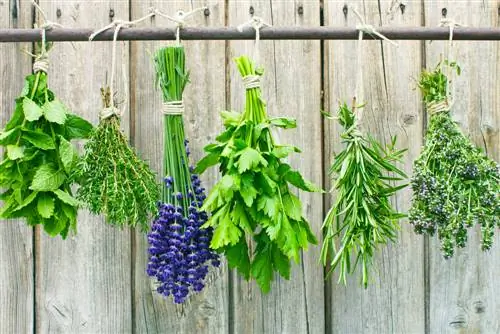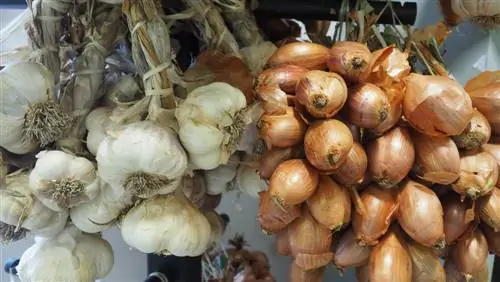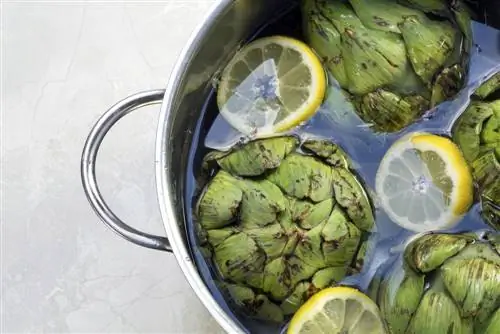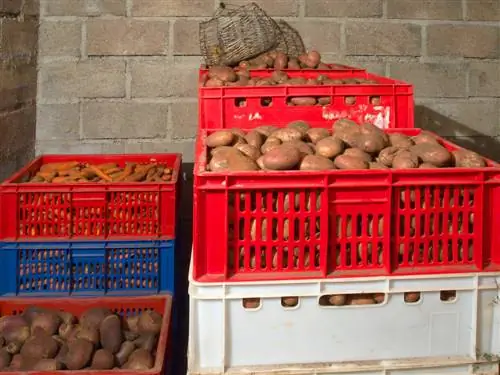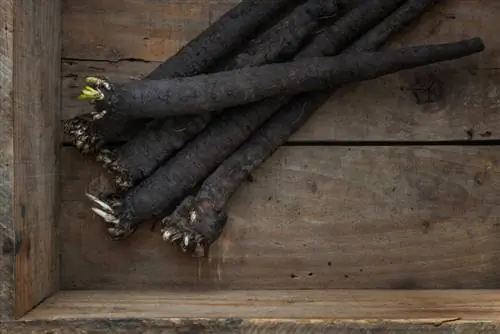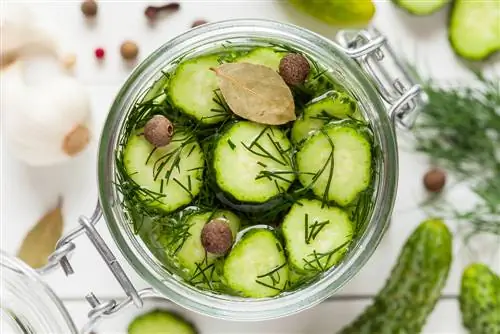- Author admin leonars@hobbygardeners.com.
- Public 2023-12-16 16:46.
- Last modified 2025-01-23 11:22.
Herbs are an indispensable part of the kitchen because they refine dishes and have positive effects on he alth. However, fresh plant parts have a short shelf life, which you can extend using a few methods.
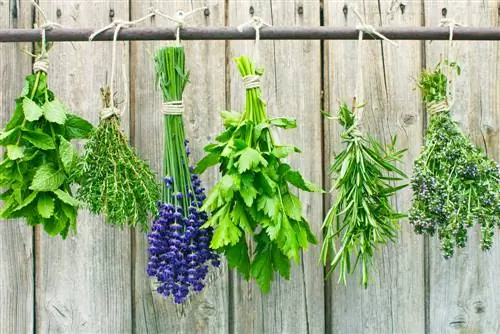
How to store herbs properly?
Herbs can be stored by storing them in a vase with water, in the refrigerator, by freezing or drying. Each method extends the shelf life and preserves the aromas and freshness of the herbs for later use.
Bundle of herbs in the vase
If you consume the culinary herbs within a short period of time, we recommend storing them in a vase filled with water. This keeps the leaves fresh for a while as they continue to be supplied with liquid. Add some glucose to increase success.
Depending on the plant, you can extend the shelf life to five to ten days. Some herbs such as pimpinelle, wild garlic and dandelion are not suitable for this method as their aroma quickly weakens. The stalks of chives absorb too much liquid and become slimy.
Leaves in the fridge
When storing them refrigerated in the vegetable compartment, make sure that the herbs do not lose too much moisture. A lockable container is ideal for taking advantage of the shelf life. Add a few drops of tap water to the container so that the plant parts are surrounded by moist air and do not dry out. In this way, sorrel, chives, wild garlic or parsley will last for up to two weeks.
Tip
As an alternative to the plastic box, simply use a kitchen towel that you moisten before wrapping.
Long shelf life in the freezer
Frozen herbs can be stored for up to ten months. However, they lose their aroma over time. Freezing is the only way to preserve pimpinelle, wild garlic and borage. Oregano, thyme, marjoram and rosemary can also be frozen.
Make herb cubes:
- Chop plant parts as small as possible
- portion into ice cube tray
- fill with water and freeze
- suitable for chives, dill, parsley, thyme, tarragon, lemon balm and basil
Drying herbs
Species whose plant parts contain hardly any moisture are more suitable for preservation by drying. These include Mediterranean plants such as rosemary and thyme. You can dry any herb except cress and borage. Bundle the herbs and hang them in a place with warm air and good ventilation. They are optimally dried when the leaves rustle slightly when touched.

